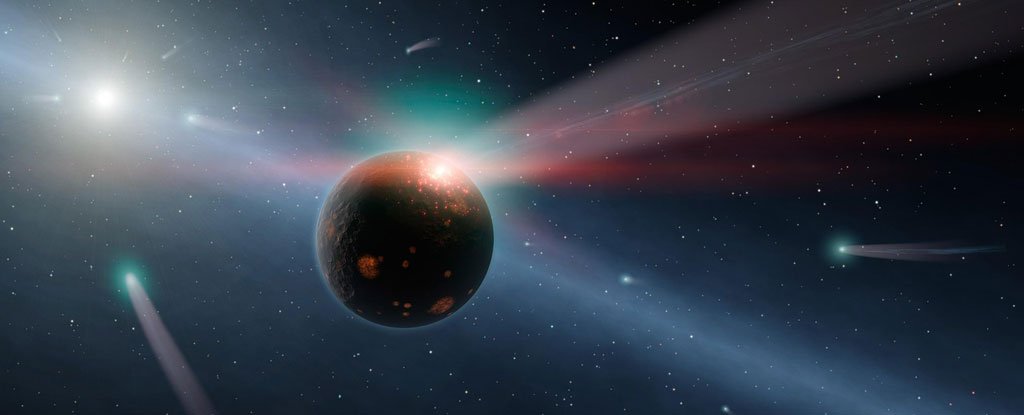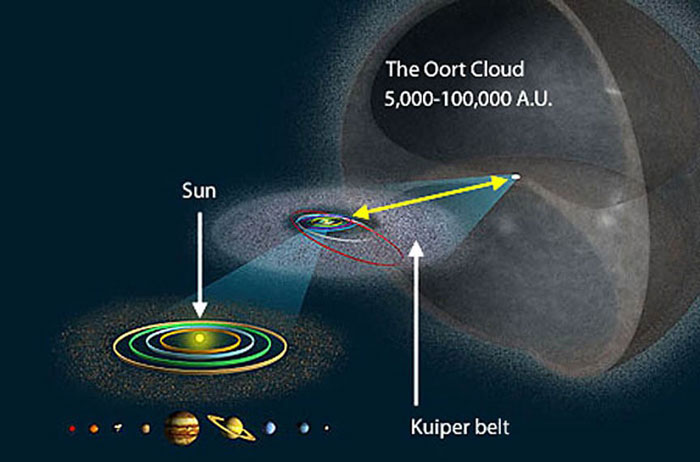Astronomers have predicted that a rouge star called Gliese 710 is coming straight towards our Solar System rapidly, and now they have also worked out exactly when it should reach our solar system. Gliese 710 is currently plunging through space at almost 32,000 mph (51,499 km/h), but gladly it is almost 64 light-years away.
According to a research paper published in the journal Astronomy & Astrophysics, Gliese 710 is nearly half the size of our Sun, and is set to reach Earth in 1.35 million years. And when it reaches, the star could end up a only 77 light-days away from Earth – one light-day being the equivalent of how far light travels in one day, which is about 16 billion miles (26 billion kilometres), the astronomers worked out.
As far as astronomers know, Gliese 710 isn’t set to hit directly with Planet Earth, but it will be zipping past through the Oort Cloud, a shell of trillions of icy objects at the outermost spreads of our Solar System.
Jedimaster/Wikimedia
This speeding star could burst through the Oort Cloud and redirect these icy objects and comets all around our Solar System. Astronomers are pretty sure Any one of these is pretty likely to collide with Earth.
The author of the research paper, writes:
Gliese 710 will trigger an observable cometary shower with a mean density of approximately 10 comets per year, lasting for 3 to 4 million years,
Scientists are also speculating that a related event of a rouge star passing through the Oort cloud may have triggered the asteroid that wiped out the dinosaurs almost 65 million years ago. Nonetheless, the Gliese 710 occurrence could make the dinosaur annihilation look relatively insignificant.
When it passes through our solar system, it will be the brightest and fastest noticeable object in the sky, and as the researchers speculate in the paper, it will be the “strongest disrupting encounter in the future and history of the Solar System”.
But again this will happen after some million years so there is no need to panic. Enjoy your day and keep looking up!!!
But again this will happen after some million years so there is no need to panic. Enjoy your day and keep looking up!!!



